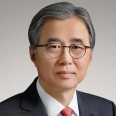Baekdu Mountain, also known as Taebaek Mountain in the Dangun mythology, has been considered a sacred mountain since Korean antiquity. Though not easily accessible due to the division between North and South Korea, its symbolism and charm attracted over 500,000 Koreans annually before the COVID-19 pandemic.
However, Baekdu Mountain faces the danger of being called ‘Changbai’ instead of ‘Baekdu.’ In 2020, China applied for ‘Changbai Mountain’ to be listed as an UNESCO Global Geopark. UNESCO’s 219th Executive Board endorsed its addition to the UNESCO Global Geoparks network under the name of ’Changbai Mountain’ in March 2024. As a result, foreigners who do not know Korean history will think it belongs to China.
When geographical features extend across several countries, joint inscription is an option. There are five cases of joint inscription among UNESCO-listed Geoparks. Notably, the United Kingdom and Ireland jointly inscribed the Marble Arch Caves, located beneath the border between Great Britain and Northern Ireland. Germany and Poland jointly inscribed the area surrounding the Lusatian Neisse River which flows across the border. Austria and Slovenia jointly inscribed the Karawanks mountain range along the border of the two countries. Thus, China should have pursued a joint inscription with North Korea, with whom China shares Baekdu Mountain. China should also have chosen a name that embodies both China and Korea, such as ’Changbai-Baekdu’ rather than solely ‘Changbai.’
China’s unilateral inscription only reinforces the perception of it being an extension of the “Northeast Project.” Under this project, China denies the history of the Korean people originating from the Manchurian region, asserting an arbitrary claim that “all ethnic groups within present-day Chinese territory are part of the broader Chinese ethnicity, and all historical activities they have accomplished belong to China’s history.”
China has long advocated the ‘Changbai Mountain Cultural Theory’ in an attempt to Sinicize Baekdu Mountain. In 2011, the Chinese government produced and aired a six-part documentary series titled ‘Changbai Mountains.’ The purpose was to convince the Chinese people that the histories of the Korean kingdoms of Goguryeo and Balhae are part of Chinese history and that Baekdu Mountain is a Chinese mountain. President Xi Jinping of China told President Trump during the April 2017 U.S.-China Summit that “Korea actually used to be a part of China,” a statement that contradicts the spirit of mutual respect between countries.
According to one historian, throughout thousands of years of Korean history, Korea experienced 931 big and small invasions, with 438 of them attributed to China. Whenever new dynasties emerged, China sought to subordinate Korea. Whenever Korea refused, China did not hesitate to invade, and Korea fought fiercely with its life. At the end of the 6th century, the Sui Dynasty, which unified China, ordered neighboring countries to pay tribute. King Yeongyang of Goguryeo refused. In 598, the Sui launched an invasion with 300,000 troops, but suffered a major defeat at the Battle of Linyuguan led by General Gang Isik of Goguryeo.
In 612, Emperor Yang of Sui invaded Goguryeo with a force of 1.13 million troops. The length of the entire army stretched about 400 kilometers, and it took 40 days to complete the expedition. However, due to the strategic brilliance and bravery of Goguryeo General Eulji Mundeok, the Sui army was nearly annihilated at the Battle of Salsu, leading to the decline and eventual collapse of the Sui Dynasty.
In the mid-7th century, the Tang Dynasty sought to subjugate Goguryeo as its vassal state. When their demands were rejected by Goguryeo’s leader Yeon Gaesomun, Emperor Taizong led a 300,000-strong army to invade Goguryeo in 645. But thanks to Yeon Gaesomun and Commander Yang Manchun’s leadership, Goguryeo repelled the Tang at the Battle of Ansi. In the late 7th century, the Tang denied Silla’s sovereignty and sought to incorporate the Korean Peninsula into its territory. The Kingdom of Silla then launched a preemptive attack against the Tang-controlled region of Yodong. Despite the Tang’s invasion with a large army, King Munmu of Silla drove the Tang forces out and achieved a great victory at the Battle of Maeso Castle.
Between 993 and 1019, the Kingdom of Goryeo resisted three Khitan invasions. General Kang Kam-chan fought with determination at the Battle of Kwiju in the third invasion in 1019, preventing further Khitan attacks. These wars, fought at the cost of Korea’s fate against China’s attempts to make the Korean Peninsula a part of China, prove unequivocally that Korea and China are distinctly two separate countries.
Regarding the “Sinicization of Baekdu Mountain,” the South Korean government should convey to the Chinese government that Baekdu Mountain holds immense symbolic significance which is non-negotiable, and that China’s propagation of the ‘Changbai Mountain Cultural Theory’ could seriously damage current Korea-China relations. While China’s unilateral inscription has been accepted by UNESCO, there is a need to strongly demand the parallel use of the name ‘Baekdu’ and correct historical distortions. Education about the history and symbolism of Baekdu Mountain should also be reinforced for future generations to prevent them from being swayed by China’s unilateralism or historical distortions.
* The view expressed herein was published on April 25 in The Dong-a Ilbo and does not necessarily reflect the views of The Asan Institute for Policy Studies.

 Facebook
Facebook Twitter
Twitter